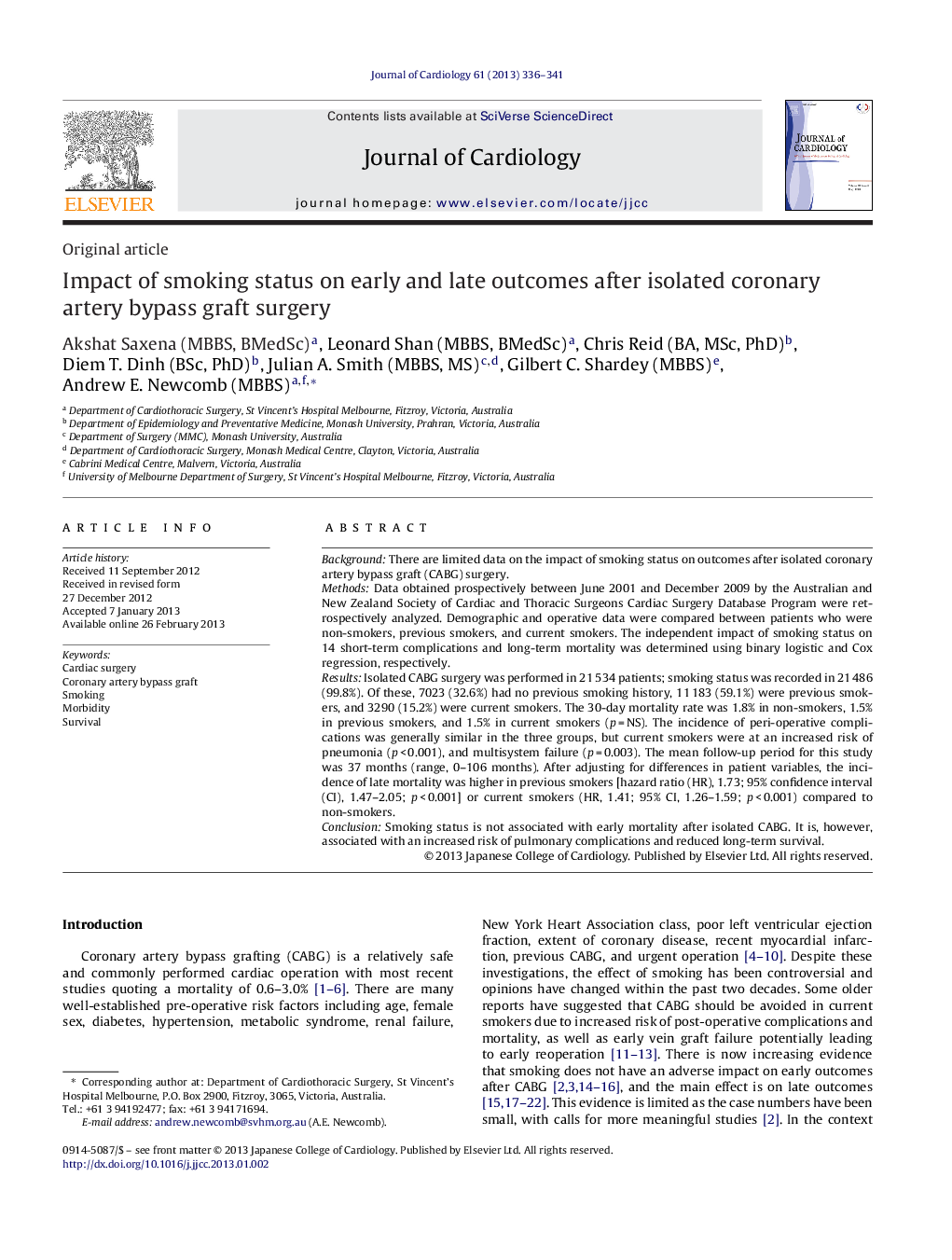| Article ID | Journal | Published Year | Pages | File Type |
|---|---|---|---|---|
| 5984159 | Journal of Cardiology | 2013 | 6 Pages |
BackgroundThere are limited data on the impact of smoking status on outcomes after isolated coronary artery bypass graft (CABG) surgery.MethodsData obtained prospectively between June 2001 and December 2009 by the Australian and New Zealand Society of Cardiac and Thoracic Surgeons Cardiac Surgery Database Program were retrospectively analyzed. Demographic and operative data were compared between patients who were non-smokers, previous smokers, and current smokers. The independent impact of smoking status on 14 short-term complications and long-term mortality was determined using binary logistic and Cox regression, respectively.ResultsIsolated CABG surgery was performed in 21 534 patients; smoking status was recorded in 21 486 (99.8%). Of these, 7023 (32.6%) had no previous smoking history, 11 183 (59.1%) were previous smokers, and 3290 (15.2%) were current smokers. The 30-day mortality rate was 1.8% in non-smokers, 1.5% in previous smokers, and 1.5% in current smokers (p = NS). The incidence of peri-operative complications was generally similar in the three groups, but current smokers were at an increased risk of pneumonia (p < 0.001), and multisystem failure (p = 0.003). The mean follow-up period for this study was 37 months (range, 0-106 months). After adjusting for differences in patient variables, the incidence of late mortality was higher in previous smokers [hazard ratio (HR), 1.73; 95% confidence interval (CI), 1.47-2.05; p < 0.001] or current smokers (HR, 1.41; 95% CI, 1.26-1.59; p < 0.001) compared to non-smokers.ConclusionSmoking status is not associated with early mortality after isolated CABG. It is, however, associated with an increased risk of pulmonary complications and reduced long-term survival.
